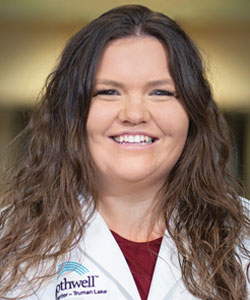COVID-19 Vaccine Questions
We know you have questions about vaccines that help prevent Covid-19, and that’s perfectly normal. You should get answers before deciding if it’s right for you. Below we have provided answers to frequently asked questions as well as an opportunity to talk with a Nurse Practitioner in confidence to ask your questions. We're here to listen, answer your questions and build your trust when it comes to questions about your and your family’s health and well-being, especially about Covid-19 and vaccines.
Booster COVID-19 Vaccine FAQs
Current vaccine and booster authorizations are:
- Primary vaccine authorized for children ages 6 months to all adults
- First booster shot authorized for children ages 5 years to all adults
- Second booster shot authorized for all individuals 50 years and older and to moderately to severely immune-compromised individuals 12 years and older.
- Omicron-updated booster shot authorized for individuals 12 years and older who have received all primary series doses and people who have previously received one or more original (monovalent) boosters.
Covid-19 vaccine boosters can further enhance or restore protection that might have decreased over time after your primary vaccination.
The CDC recommends that everyone ages 5 years and older should get one booster after completing their primary series.
The CDC recommends that adults 50 years and older and some people 12 years and older who are moderately or severely immunocompromised should receive two boosters.
The older you are, the more important it is to get a second booster. In general, if you have not received a vaccine in the past six months, getting a booster is a good idea.
A second booster is not currently recommended for people in good health under the age of 50. Experts say if you’re in this category and you have already received one booster shot previously, you can wait for the Omicron-specific booster shot.
The general recommendation is for people to wait five months between booster doses. While the vaccines are safe and effective, back-to-back booster doses are unlikely to add much benefit.
People with “hybrid immunity” – those who have received a booster shot in the past and recovered from a Covid infection –should consider waiting for the Omicron-specific shot unless they are elderly or immunocompromised. Also, individuals who were early recipients of the booster, which was first available in late September 2021 are now nearly a year out from their last booster. These individuals are at some risk for declining levels of antibody protection and may consider boosting now before the new strains become available. It is likely that there will be an increasing risk of infection as the time since last boost gets longer and longer. It is not clear that the potential benefit of the new formulation is greater than the current risk from continued time with low and falling antibody levels. There is still no definite announcement of when the new vaccine will become available for administration. If someone chooses to take the second booster, the sooner they do so the better. As the availability of the new vaccine gets closer and closer,the risk of waiting declines and it makes more sense to wait a bit longer for the new formulation.
It is expected that the new formulation will provide at least as good and possibly better protection from the current variant. While it won’t guarantee protection from infection, it will help prevent serious illness and/or hospitalization and death for most recipients.
Current information is that individuals who have not completed the primary vaccination won’t be eligible for the updated formula until completion of the primary series with the existing Covid vaccines. An important reason behind this policy is that the new formulations are being tested for safety and effectiveness as boosters to the primary vaccination series. While there is every reason to believe that the new formulation should work as well if not better than the primary series of the original formulation, there will be little to no data available to establish the safety and effectiveness of the new formulation as the original vaccine.
Talk to your health care clinician about your personal situation. In the meantime, use the CDC’s Covid-19 Booster Tool to learn if and when you can get boosters to stay up-to-date with your Covid-19 vaccines.
General COVID-19 Vaccine FAQs
Following a thorough safety review, including two meetings of the CDC’s Advisory Committee on Immunization Practices, the U.S. Food and Drug Administration and the U.S. Centers for Disease Control and Prevention have determined that the recommended pause regarding the use of the Janssen (Johnson & Johnson) COVID-19 Vaccine in the U.S. should be lifted and use of the vaccine should resume.
Nearly seven million people in the United States have received the Johnson & Johnson vaccines so far. Six women 18 to 48 years of age developed a rare disorder involving blood clots within six to 13 days after vaccination. The adverse reactions to the Johnson & Johnson vaccine appear to be extremely rare. Common post-vaccine symptoms, such as body aches or other flu-like signs, aren't associated with blood clots.
People who have received the Johnson & Johnson vaccine who develop a severe headache, abdominal pain, leg pain, or shortness of breath within three weeks after vaccination should go to the nearest Emergency Room to seek care or contact their health care provider immediately. For general questions about the Johnson & Johnson vaccine or other related COVID-19 questions, call the state COVID-19 hotline at 877-435-8411.
Any vaccine or medication can cause side effects. You may experience common side effects such as swelling and sore arm where you got the shot along with an overall low-grade fever, chills, tiredness, or headache that goes away within a few days. These symptoms are normal and are a sign that the body is building immunity. Safety is the top priority of the vaccine. Talk with your Bothwell provider about specific concerns you may have.
While the first COVID-19 vaccines are new to people, they are based on science that is more than 30 years old. The Pfizer and Moderna vaccines provide our bodies with only part of the genetic code of the COVID virus, not a full weakened or dead virus, like some vaccines. From that code, our bodies produce proteins that are harmless on their own, but they allow our immune systems to produce antibodies in response. Those antibodies will then be able to recognize and attack COVID-19 if you’re exposed and it’s introduced to your body.
COVID-19 has caused very serious illness and death for many people and their loved ones. While we are unsure how long the vaccine protection lasts for those who are vaccinated, getting a COVID-19 vaccine is a safer choice than risking contracting the virus and giving it to loved ones who may get very sick.
Yes. Due to serious health risks with the virus and the possibility of reinfection, it is recommended you should get vaccinated. Ask your Bothwell provider about timing based on how long you’ve been symptom-free.
The COVID-19 vaccine is completely free of charge to all people living in the United States, regardless of immigration or health insurance status. Please bring your health insurance card and driver’s license or government-issued photo ID to your appointment. If you do not have health insurance, please bring your driver’s license or social security number. We need these documents to file for reimbursement from your insurance company or through the federal government (for uninsured).
It depends. Fully vaccinated people can gather indoors without physical distancing or wearing masks with other people who are fully vaccinated. However, mask-wearing, proper hand hygiene, and social distancing are still encouraged after vaccination to protect others not yet vaccinated. The annual flu vaccination is also still recommended.
No. If you have symptoms of COVID-19, please wait to be vaccinated until you have recovered from the illness and have met the criteria for discontinuing quarantine. Even if you don’t have symptoms, but tested positive, please wait until your quarantine has ended. This also applies to people who get COVID-19 before their second dose of the vaccine.
No. None of the authorized and recommended COVID-19 vaccines contain the live virus that causes COVID-19. This means that a COVID-19 vaccine cannot make you sick with the virus. However, it typically takes a few weeks for the body to build immunity, after vaccination. Therefore, it’s possible a person can be infected with COVID-19 just before or just after vaccination because the vaccine has not had enough time to provide protection.
The Pfizer vaccine is a two-dose vaccine with a 21-day period between the first and second dose. The Pfizer’s vaccine was approved for those age 16 and older. It is not recommended for individuals who have experienced a serious reaction (e.g., anaphylaxis) to any of its components.
Each dose of the Pfizer-BioNTech COVID-19 vaccine contains 30 mcg of a nucleoside-modified messenger RNA (modRNA) encoding the viral spike (S) glycoprotein of SARS-CoV-2. It also includes the following ingredients: lipids (0.43 mg (4-hydroxybutyl)azanediyl)bis(hexane-6,1-diyl)bis(2-hexyldecanoate), 0.05 mg 2[(polyethylene glycol)-2000]-N,N-ditetradecylacetamide, 0.09 mg 1,2-distearoyl-sn-glycero-3-phosphocholine, and 0.2 mg cholesterol), 0.01 mg potassium chloride, 0.01 mg monobasic potassium phosphate, 0.36 mg sodium chloride, 0.07 mg dibasic sodium phosphate dihydrate, and 6 mg sucrose. The diluent (0.9% Sodium Chloride Injection, USP) contributes an additional 2.16 mg sodium chloride per dose.
For additional information on the Pfizer vaccine visit cvdvaccine-us.com
The Moderna vaccine is a two-dose vaccine with a 28-day period between the first and second dose. The Moderna vaccine was approved for those age 18 and older. It is not recommended for individuals who have experienced a serious reaction (e.g., anaphylaxis) to any of its components.
The Moderna COVID-19 vaccine contains the following ingredients: messenger ribonucleic acid (mRNA), lipids (SM-102, polyethylene glycol [PEG] 2000 dimyristoyl glycerol [DMG], cholesterol, and 1,2-distearoyl-sn-glycero-3-phosphocholine [DSPC]), tromethamine, tromethamine hydrochloride, acetic acid, sodium acetate, and sucrose.
For additional information on the Moderna vaccine visit, modernatx.com
On April 13, 2021, the Centers for Disease Control and the Federal Drug Administration called for an immediate pause in the use of Johnson & Johnson’s single-dose coronavirus vaccine.
The U.S. Vaccine Adverse Event Reporting System alerted vaccine administrators to a possible issue regarding women who have thrombocytopenia and cerebral venous sinus thrombosis (CVST) in vaccinated individuals.
Nearly seven million people in the United States have received the Johson & Johnson vaccines so far. Six women 18 to 48 years of age developed a rare disorder involving blood clots within six to 13 days after vaccination. The adverse reactions to the Johnson & Johnson vaccine appear to be extremely rare. Common post-vaccine symptoms, such as body aches or other flu-like signs, aren't associated with blood clots.
People who have received the Johnson & Johnson vaccine who develop the following symptoms should go to the nearest Emergency Room to seek care or contact their health care provider immediately.
- Severe headache
- Backache
- New neurological symptoms (similar to a stroke)
- Severe abdominal pain
- Shortness of breath
- Leg swelling
- Petechiae or new or easy bruising
For general questions about the Johnson & Johnson vaccine or other related COVID-19 questions, call the state COVID-19 hotline at 877.435.8411.
The Johnson & Johnson vaccine is a viral vector vaccine and is administered in one shot. It is approved for people over the age of 18. It is not recommended for individuals who have experienced a serious reaction (e.g., anaphylaxis) to any of its components.
The Janssen COVID-19 Vaccine includes the following ingredients: recombinant, replication-incompetent adenovirus type 26 expressing the SARS-CoV-2 spike protein, citric acid monohydrate, trisodium citrate dihydrate, ethanol, 2-hydroxypropyl-β-cyclodextrin (HBCD), polysorbate-80, sodium chloride.
For additional information on the Johnson & Johnson vaccine, visit fda.gov
Yes, you can. It has been approved for use in pregnancy.
- It is recommended for all people 12 years and older, including those who are pregnant, breastfeeding, or trying to get pregnant now or in the future.
- Data shows COVID-19 vaccines are safe, while the risk of becoming seriously ill or dying due to COVID-19 is very real.
- COVID-19 vaccines create an immune response but do not reproduce inside your body.
- Pregnancy puts you at an increased risk for a more severe illness from COVID-19 when compared to non-pregnant people.
- Pregnancy complications, such as preterm birth, are increased if you get sick with COVID-19 while pregnant.
Source: https://www.cdc.gov/coronavirus/2019-ncov/vaccines/recommendations/pregnancy.html
Yes, the vaccine is safe with pregnancy.
- No unexpected pregnancy issues or problems with unborn babies as a result of vaccination have been identified.
- If you have had severe reactions to a vaccine, talk to your health care provider.
Source: https://www.cdc.gov/coronavirus/2019-ncov/vaccines/recommendations/pregnancy.html
Yes, it is recommended that pregnant individuals and those considering pregnancy receive the booster shot when eligible to help reduce breakthrough exposures and increase their immunity to COVID-19.
Source: https://www.cdc.gov/coronavirus/2019-ncov/vaccines/recommendations/pregnancy.html
Yes, the COVID-19 vaccination is recommended for people who are breastfeeding and is safe.
- Data shows COVID-19 vaccines are safe, and the risk of becoming seriously ill or dying due to COVID-19 is very real.
- The COVID-19 vaccines create an immune response but do not reproduce inside your body.
- Breastfeeding people who receive the vaccine have antibodies in their breastmilk, which could help protect their babies.
- As more lactating individuals receive the vaccine, more data will be available about the benefits/risks. Discuss with your obstetric or pediatric provider.
- A vaccine registry that is gathering information on breastfeeding and the COVID -19 Vaccine can be accessed at https://vsafe.cdc.gov/en/
Source: https://www.cdc.gov/coronavirus/2019-ncov/vaccines/recommendations/pregnancy.html
No, reduced milk supply is not an expected outcome of vaccination.
- Generally, issues are common whether or not you have the vaccine. Contact your lactation consultant or counselor for tips on maintaining your milk supply.
Source: https://www.cdc.gov/coronavirus/2019-ncov/vaccines/recommendations/pregnancy.html
It’s unlikely the vaccine transfers into breastmilk, but the antibodies your body creates after getting the vaccine may transfer to the milk and benefit the baby.
Source: https://www.cdc.gov/coronavirus/2019-ncov/vaccines/recommendations/pregnancy.html
Yes, it is recommended that individuals who are within six weeks post-partum receive the booster shot when eligible to help reduce breakthrough exposures, increase their immunity to COVID-19, and potentially provide added immunity to their baby.
Source: https://www.cdc.gov/coronavirus/2019-ncov/vaccines/recommendations/pregnancy.html
Yes, you can.
- Continuing to breastfeed while you have side effects of the vaccine may have the benefit of passing on immunity.
- Keep hydrated and only use symptom relief that is safe for breastfeeding individuals.
- At this time, there is no data regarding the health impact on breastfed infants of mothers who were vaccinated. However, any vaccine that makes it into breast milk is likely to be quickly inactivated when the milk is digested.
Source: https://www.cdc.gov/coronavirus/2019-ncov/vaccines/recommendations/pregnancy.html
We're Here to Talk

Sarah Price, FNP

Chelsea Casteel, FNP
Nurse Practitioners Sarah Price at Bothwell TLC Pediatrics and Chelsea Casteel at Bothwell Health Center-Truman Lake are here to talk and answer any questions you may have about the vaccines.
If you would like to speak to Sarah or Chelsea in confidence about your questions and concerns, please complete the form below. If you're ready for the vaccine, visit the Vaccine Information page for all available Bothwell vaccine locations.
